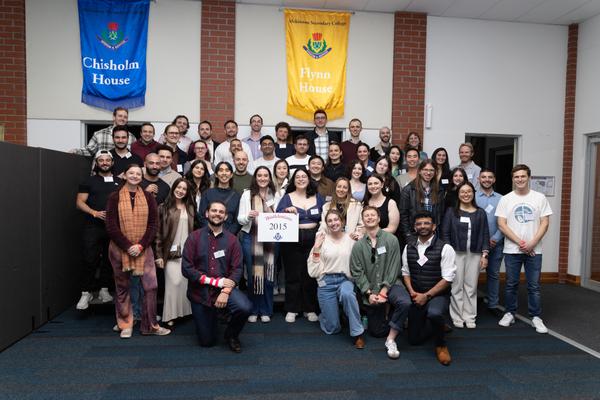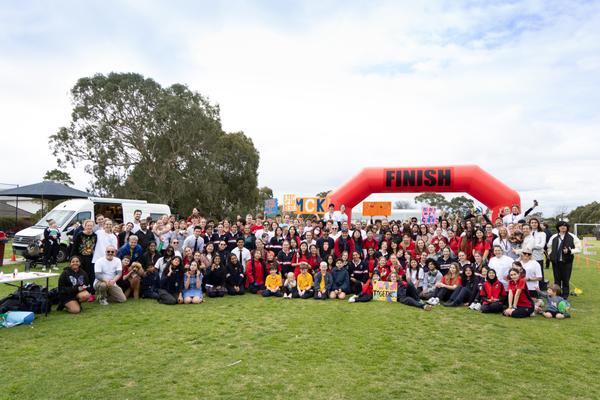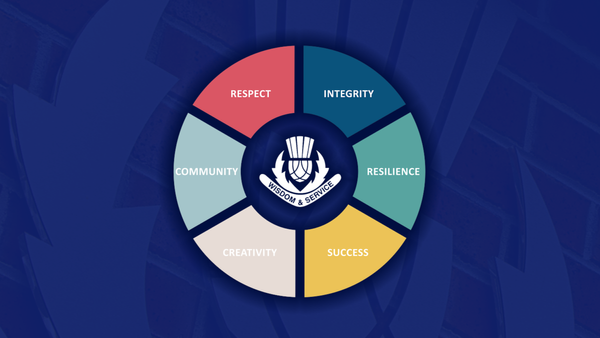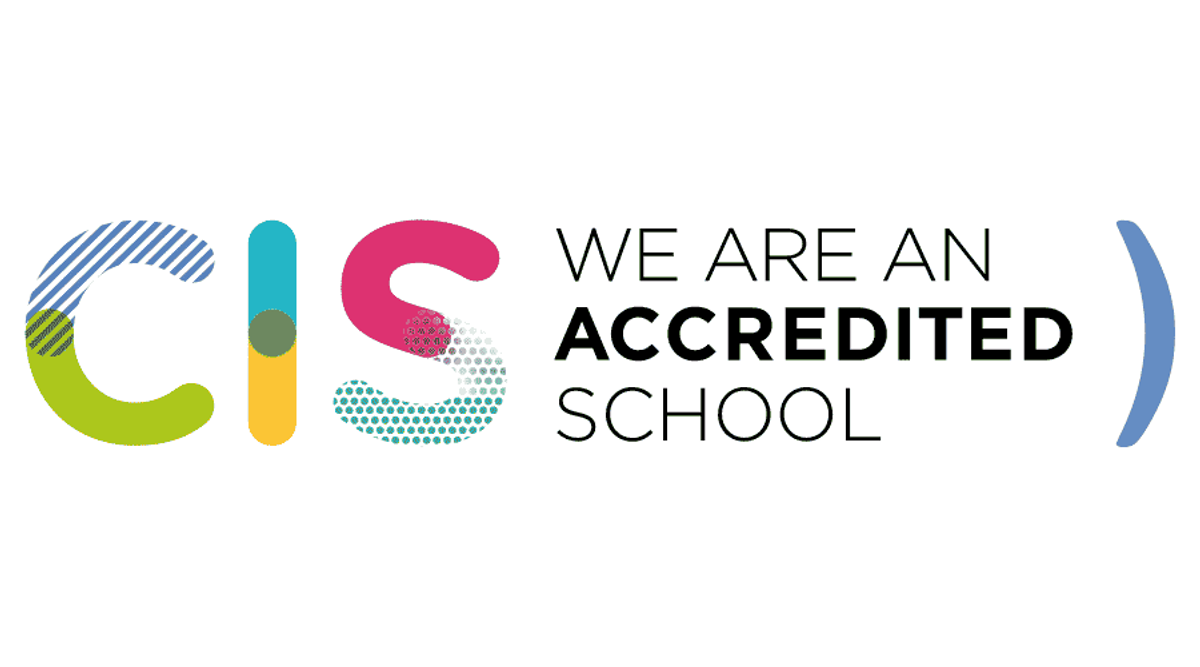Vision and Values
McKinnon Secondary College fosters a life-long love of learning. We celebrate Australia's diversity and indigenous heritage. We nurture excellence and empathy in our students as global citizens, ready to participate and be leaders in a complex world. Our students are confident and creative individuals with a strong sense of community and social responsibility. For more information on Vision and Values click here. OUR VALUES
Presentation Night 2025
The final formal occasion of 2025 was our Presentation Night, celebrating outstanding student achievement across music, sport, the arts and academic pursuits. A special congratulations to our College Dux, Siena Nott, who achieved an exceptional ATAR of 99.70. Siena also earned a perfect study score of 50 in Chemistry. Thank you to our special guests who presented awards, and to the staff who helped organise and ensure the smooth running of the event, as well as the many families and staff who attended. It was a wonderful celebration of our community. Well done to all McKinnon students recognised on the night. Your hard work and dedication are truly inspiring. You can view the photo gallery here
VCE Results 2025
I am proud to share with you the outstanding VCE results for the Class of 2025. These exceptional outcomes are a true reflection of the dedication and hard work of our talented students. 123 students received an ATAR above 90227 students (55%) received an ATAR above 809 perfect study scoresMedian Study score: 33Study scores over 40: 12.5% Well done to all of our VCE students on your achievements! I would also like to acknowledge the wonderful teachers, support staff, and parents who have worked closely with and supported the Class of 2025. Michael KanPrincipal
Council of International Schools Re-accreditation
I am very proud to announce that McKinnon Secondary College has officially received re-accreditation from the Council of International Schools. This milestone is a testament to our school's commitment to high-quality international education and the journey of continuous improvement. This was a significant undertaking, and I would like to thank everyone involved, particularly Mr Phillip O’Brien, who led the process. Well done on this incredible achievement. Michael KanPrincipal

Victorian Education Excellence Award Finalists
We are incredibly proud to share that our Student Wellbeing Team were named finalists in the 2025 Victorian Education Excellence Awards for the second consecutive year. The Outstanding Education Support Team Award recognises education support teams across Victoria that demonstrate exceptional collaboration, innovation, and a strong impact on student learning and wellbeing. This recognition not only celebrates the vital work our team does each day to support students, staff, and families, but also acknowledges significant initiatives such as the McK Respect Project, our Wellbeing Vision, Framework & Strategic Design, and the delivery of Teen Mental Health First Aid to over 120 staff and 550 students. Although we did not take home the award this year, being recognised among the state’s most dedicated educators was a moment of great pride. We congratulate our Student Wellbeing Team on this achievement and thank them for the profound and lasting impact they continue to make within our school community.

Wisdom & Service
This semester the focus in Year 9 Wisdom & Service has been preparing our Year 9 students to engage with the wider community. This has included developing resumes, writing cover letters and participating in mock job interviews, all aimed at supporting our students as many of them begin their journey to the world of employment. Our Year 9 students demonstrated that as members of the McKinnon Secondary College community, they are the ideal employees of choice for local organisations, and many of our students have successfully landed their first casual jobs. The other key area of focus this semester has been empowering our Year 9 students in identifying value they can bring to the community through the Wisdom & Service Project. The Wisdom & Service Project tasks students to identify an important community need, undertake research, propose a plan to address the community need, and where appropriate, put their plans into action. Students were not only given the opportunity to present their action plans to their classes, but also to take their ideas to the community at our Wisdom & Service Open Night on Thursday 23 October 2025 at East Campus. Students set up stalls throughout the campus, and parents, staff and other invited guests were given the opportunity to not only listen to our students’ "pitch" their ideas, but also to question their reasoning and justify their proposed undertakings. Taking inspiration from TV shows such as Dragons' Den and Shark Tank, we introduced the "WASP Nest" (which stands for Wisdom And Service Project Night Exhibiting Student Talent) whereby eight groups were given an opportunity to present their pitch in an official capacity to an open forum, inclusive of five judges (or "wasps"). Considering the energetic "buzz" that was evident throughout the East Campus, we felt that the event was indeed suitably named and a successful way to celebrate our Year 9 students' achievements! Well done to our Year 9 cohort for embodying our school values by approaching this event with Respect for their audience, completing their research with Integrity, producing a Community focused solution with Creativity, facing public scrutiny with Resilience, and ultimately celebrating Success with their overall learning throughout this experience. Chris PanteliosYear 9 Wisdom & Service Program Coordinator

Grand Reunion 2025
Our Grand Reunion on the evening of Saturday, 25 October, brought together the Classes of 1960, 1965, 1970, 1975, 1980, 1985, 1995, 2005, 2015, and 2020. It was a night filled with laughter, memories and reconnections, as old friends shared stories from their school days and celebrated the years gone by. The friendly bar staff kept the atmosphere lively, and many familiar faces were reunited once again. A heartfelt thank you to our wonderful Thistlelonian Committee for organising such a special event, and to the many volunteers whose efforts make these reunions possible. Scroll to view the photos below, or click here Afternoon Tea 2025The classes of 1960 and 1975 were invited back to school by Principal Michael Kan for a special Afternoon Tea on Saturday. The class of 1960 celebrated 65 years since graduation, and the class of 1975 celebrated 50 years since graduation. It was heartwarming to witness their reunion and show them around the school, which has changed quite a bit since they were here! There was a fantastic atmosphere, and we truly enjoyed seeing old friends reconnect and reminisce about their days at McKinnon. Thank you to our incredible Thistlelonian Committee for organising this wonderful event and to the many volunteers who contributed to its success. These moments of connection and tradition continue to strengthen the McKinnon community. Scroll to view the photos below, or click here

Vive le français! Celebrating Success in the Berthe Mouchette Competition
We are absolutely thrilled to announce the outstanding success of our students in the 2025 Berthe Mouchette Competition, organised by the Alliance Française de Melbourne! This year, our school saw a record-breaking level of participation, with over 50 students demonstrating their passion for French language and culture through poetry recitations, creative writing, and drawing. A massive merci (thank you!) to every single student who took part. Your enthusiasm and courage in accepting this challenge is truly commendable. Our Brilliant FinalistsThe competition was fierce, and we are incredibly proud of the 10 students who achieved the high standard required to be named finalists. This achievement is a testament to their dedication, hard work, and excellent command of French. Félicitations to all our finalists—you represented our school brilliantly! And the Winners Are...We are delighted to share that two of our exceptional students have been named overall winners in their respective categories!A huge, enthusiastic congratulations goes to:Daniela Tapia-Leal (Year 12 French Epreuve Oral - 1st Place)Oscar Tran (Year 10 French Recitation de Poesie - Prix Hors-Categorie) This is an incredible accomplishment, and we celebrate their commitment to language learning and cultural understanding. Their success is an inspiration to all our French students. Awards Ceremony DetailsPlease join us in celebrating the achievements of all our finalists and winners at the official Awards Ceremony.The ceremony will be held on Monday 17 November at The Capitol Theatre at 6.30pm. This is a fantastic opportunity to recognise the hard work and talent of all participants. We encourage all parents, students, and staff to attend and share in this wonderful celebration of French language. Bravo à tous! (Well done to all!) We look forward to another successful year in 2026.

McK Respect Community Walk and Footy Match
On September 12, our McK Respect Community Walk and Footy Match brought together families, students, staff, alumni, community organisations, the Department of Education, and the Glen Eira–Old McKinnon Football Club. Together, we took a stand against gender-based violence and showed our commitment to respect, equality, and community. Together, we took a stand against gender-based violence and showed our commitment to respect, equality, and community. Each of the 16 laps connected us to the United Nations’ 16 Days of Activism Against Gender-Based Violence — a global movement we are proud to stand alongside. We finished the day with the Old McKinnon vs New McKinnon footy match, where our alumni joined current students to celebrate the strength of our community across generations. Every person deserves to feel safe, respected, and valued. Each lap and every game played was a statement of solidarity, a step towards change, and a reminder that as a community, we can and will make a difference. Together, we are the change.
Year 12 Physics Australian Synchrotron Excursion
Four groups of Year 12 physics students recently went to visit the Australian Synchrotron in Clayton, a world-class science facility that supports high-quality research in medicine, nanotechnology, and mineral exploration. The educational visit included a tour of the research facility, as well as a hands-on immersive laboratory session that is highly relevant to the VCE Physics curriculum. Sandy LawPhysics Teacher
McK Respect Community Walk Friday 12th September
Join us next week for our annual McK Respect Community Walk as we walk 16 laps, bringing our community together to take a stand against gender-based violence and to promote kindness, equality, and respect. This event supports the Respectful Relationships initiative, which aims to create a culture of respect and safety for everyone. Why 16 laps? The walk symbolises the 16 Days of Activism – a global campaign to end gender-based violence. 🔸Students and staff can register via the link on Compass.













